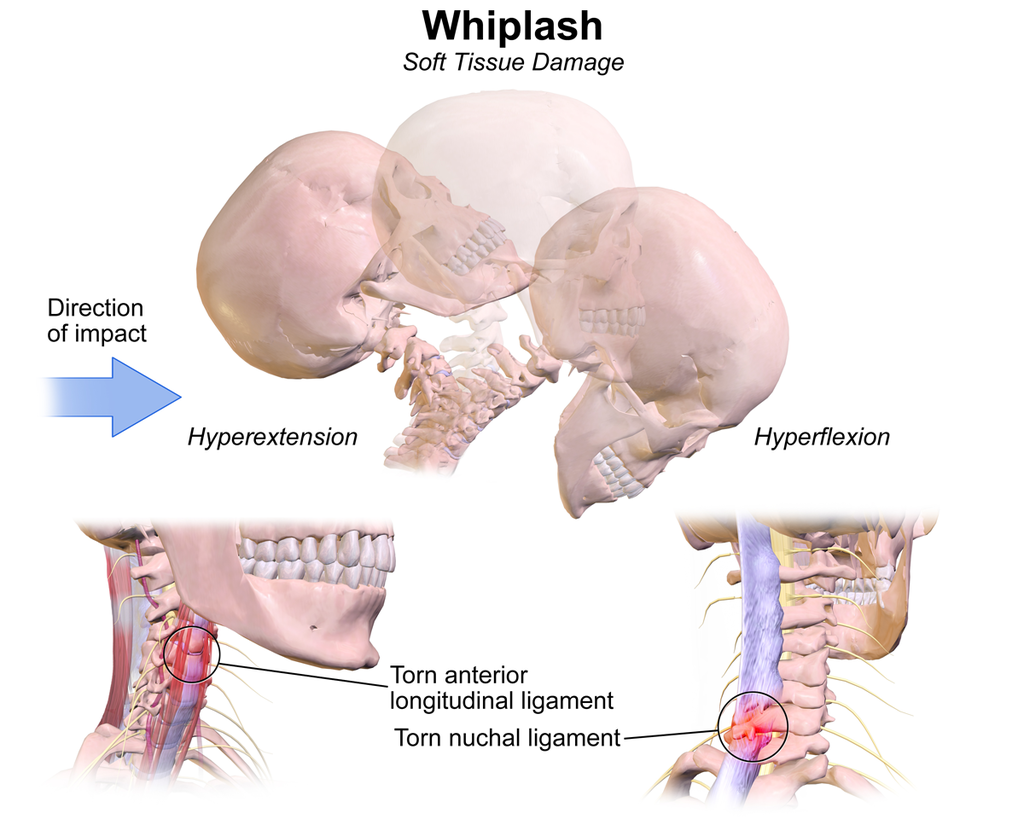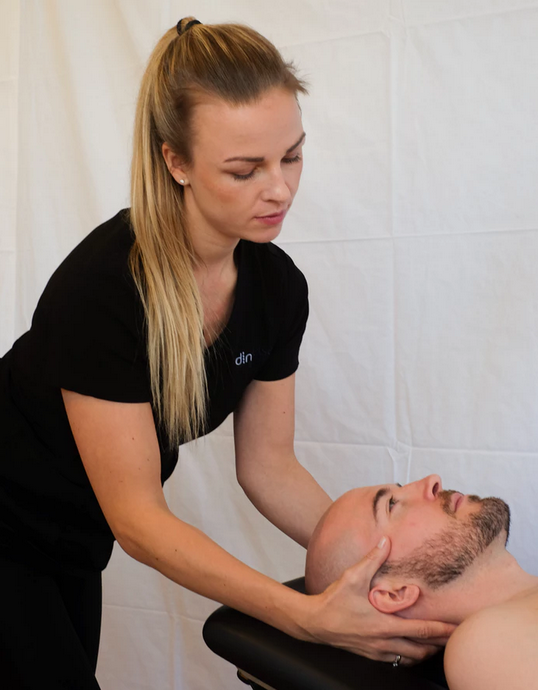nalco group
bone, muscle & joint pain physio
BOOK NOW / WHATSAPP ABOUT YOUR PAIN OR INJURY
- NOVENA 10 Sinaran Drive, Novena Medical Center #10-09, Singapore 307506
- TAMPINES 9 Tampines Grande #01-20 Singapore 528735
- SERANGOON 265 Serangoon Central Drive #04-269 Singapore 550265
Home > Blog > Spinal Physiotherapy > Whiplash
Whiplash Physiotherapy

Whiplash occurs when there is a sudden powerful forward-backward movement that is forced onto the neck (medically termed as acceleration-deceleration force).
Most of the time, whiplash injuries happen due to road traffic accidents (motor vehicle accidents) especially when a car, traveling at high speed, knocks into the back or side of another car. Other accidents can include strong collision in sports or even falls.
The sudden front-back acceleration-deceleration snaps the head forward in a full neck forward bending, followed by a quick backward snapping, like a "whipping" motion. The full damage varies depending on the
- speed of the whipping motion
- how healthy/strong the joint/soft tissue of the patient is
- how well the patient recovers naturally
- how well patient responds to spinal physiotherapy
- the extent of the damage to the spinal discs, spinal ligaments, spinal tendons, spinal muscles and spinal nerve roots
whiplash grades and severity
Whiplash injuries are graded according to the following:
- Grade 0: No pain/discomfort, with no physical injury.
- Grade 1: Mild neck pain, stiffness or tenderness. with no physical injury.
- Grade 2: Mild-moderate neck pain, stiffness or tenderness; with some physical injury such as tenderness or trouble turning the head.
- Grade 3: Moderate neck pain, stiffness or tenderness and obvious neurological signs of injury, such as changes to the reflexes or weakness in the arms
- Grade 4: Severe neck pain and fracture or dislocation of the neck.
whiplash symptoms
Most whiplash patients commonly report
And these symptoms can happen immediately after the whiplash injury, or in some cases the symptoms may present after a few days.
Other whiplash symptoms may include:
- Headache
- Tingling and/or pain in the shoulders and arms
- Dizziness
- Altered sensation, pins and needles, numbness in the arms
- Weakness
- Visual and auditory symptoms
- Difficulty concentrating
- Difficulty in swallowing
Whiplash spinal Physiotherapy

Patients with whiplash injuries can be assured when they see our senior physiotherapists and senior spinal physiotherapists that we aim to have little-to-no pain during our physiotherapy sessions (this means that you should feel very little or no pain during sessions with us).
Whiplash physiotherapy sessions may include:
-
Exercise
as therapy as it helps to improve pain
experienced, range of motion of affected joints, flexibility of the
muscles and joints, function and one's fitness.
Exercise also promotes production of endorphins, which is a naturally
occurring hormone that helps with pain control.
-
Gentle mobilization
of the spinal joints. It is a gentle
and controlled movement of the affected joints which helps to improve
mobility in areas of the spine that are limited in motion/movement.
- TENS machine, ultrasound therapy and radio-frequency Indiba (at physio discretion) - which helps to decrease the level of pain experienced through use of gentle distracting electrical stimulation.
